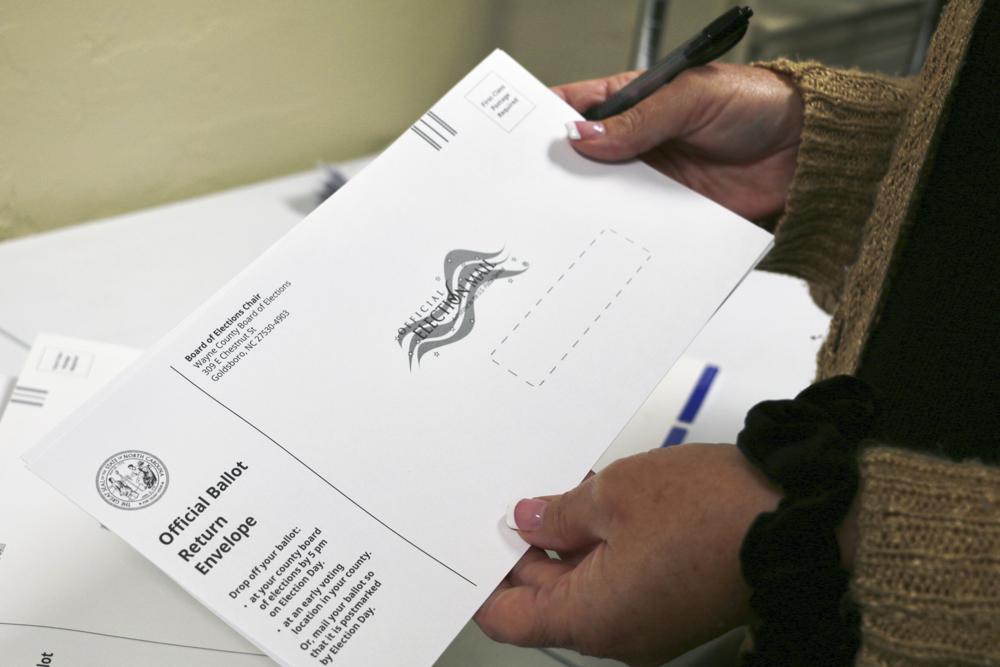North Carolina’s State Board of Elections directed county election officials on Monday not to engage in signature matching when reviewing absentee ballot envelopes this fall after a judge rejected the GOP appeal of a state board ruling prohibiting the practice.
According to a directive sent to county election directors from the board’s legal counsel Paul Cox, the judge’s ruling maintains the status quo outlined in state law, which requires that all absentee voters fill out their ballots in the presence of two witnesses or a notary. Absentee ballot request forms in North Carolina must also include a date of birth and either a driver’s license number or the last four digits of the voter’s Social Security Number.
The North Carolina Republican Party had filed motions in Wake County Superior Court last week, asking the court to block the state board from enforcing its declaratory ruling that prevented county election officials from comparing signatures on absentee ballot request forms and return envelopes with the signatures included in voter registration records.
Superior Court Judge Stephan Futrell ruled from the bench Monday afternoon, denying the party’s motion for a temporary restraining order and preventing the use of signature matching in the 2022 general election, state board spokesperson Pat Gannon said.
“Under state law, absentee voter identity is confirmed via the confidential personal information provided by the voter in requesting a ballot, the voter’s attestation on the ballot envelope and the attestation of two witnesses or a notary that the voter voted the ballot,” Cox wrote in a directive obtained by The Associated Press.
The board’s Democratic majority in July had rejected an initial signature matching proposal introduced by Republicans, citing concerns that it could create unequal voting access and allow partisan bias to contaminate the electoral process.
Republicans, for their part, argue signature verification is another necessary element of electoral transparency. In addition to pushing for its adoption, they are also fighting the state board’s proposed restrictions on party-appointed poll watchers.
“When we have those signatures on file, it is ludicrous not to be able to use them,” said North Carolina GOP Chairman Michael Whatley. “This is a very common sense tool, and I think it’s inexplicable that the board had instructed not only that the boards don’t have to use it but that they can’t use it.”
(AP)












2 Responses
California – where a Democrat landslide is all but guaranteed if the votes are authentic – has a law that requires signature matching. North Carolina – looks to me a somewhat purplish state – actually forbids such signature matching thanks to the Democrats. So despite Democrats controlling the voting system in both states, there seems to be strange discrepancy in attitude. I wonder why.
What the legislature enacts, it what you get. Courts are supposed to substitute their judgment for what is good policy.